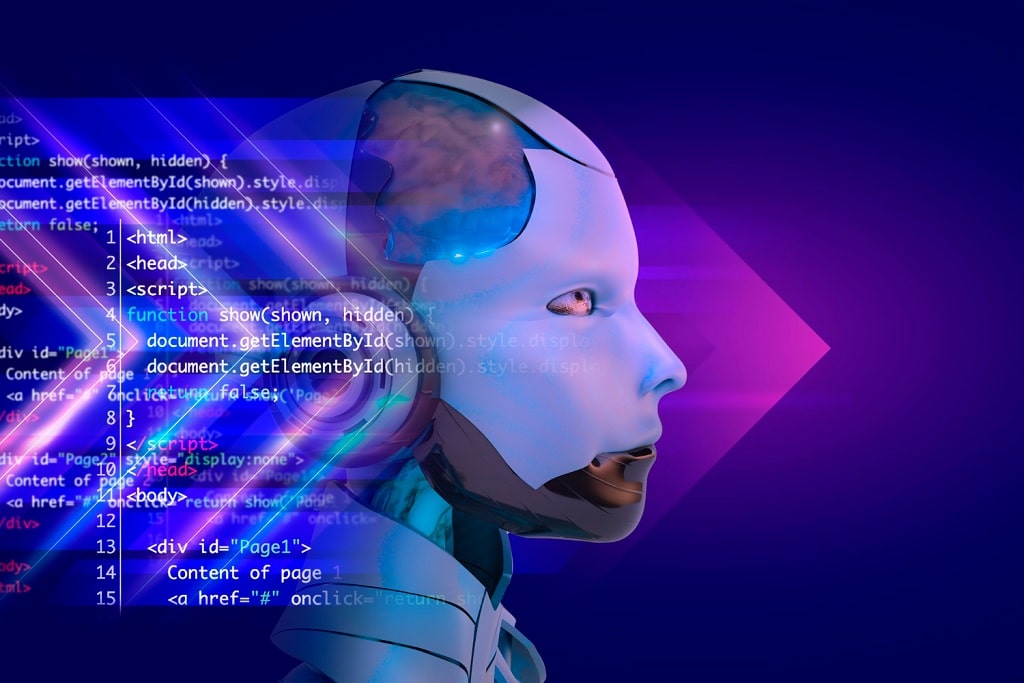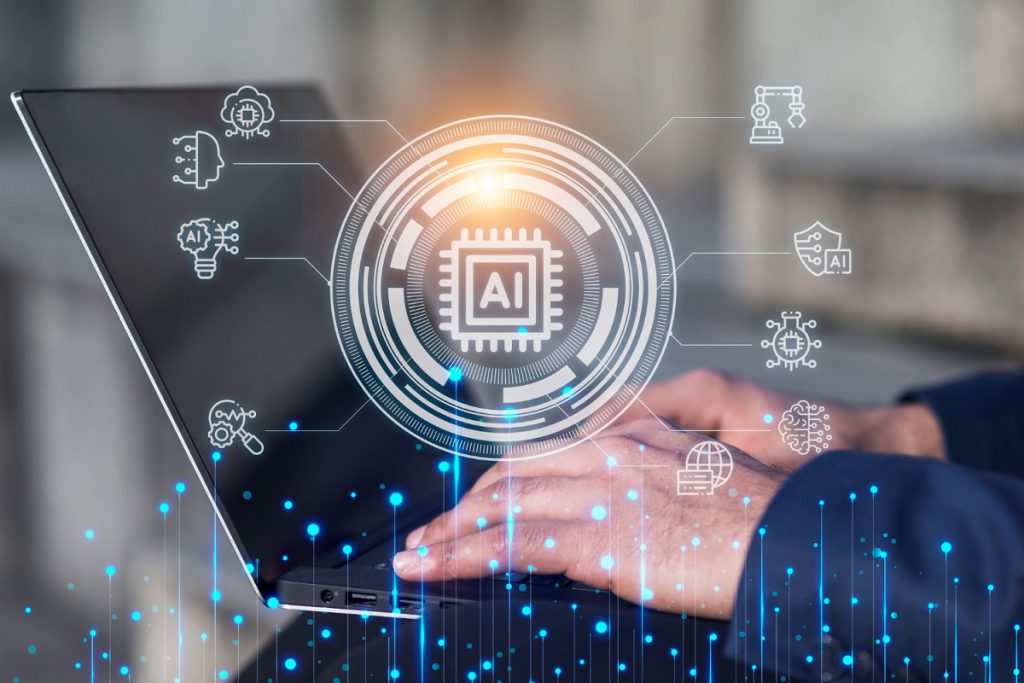The education sector paves the pathway for the success of the nation as it enhances the skills of students and makes them appropriate for different job roles, thereby generating employment.
To ensure that the education sector fulfills the current market needs for specific job roles, new professional courses need to be introduced.
This is possible with an AI-enabled learning management system where AI models can be trained with training data that helps elevate machine learning abilities.
In this way, we can design better courseware that can help students get their dream job. There are many ways AI is redefining and reshaping the future of the education sector.
Ten Ways AI is Reshaping the Education Sector
In modern times, complex research topics can be summarized on a single prompt for AI e-learning chat bots.

Let us demonstrate 10 ways artificial intelligence is reshaping the education sector.
1. Personalized Learning Paths:
By making use of e-learning apps powered by artificial intelligence, we can create a personalized learning path for every student. In this way, students can decide the learning time as per their own schedule and preferences.
This helps in better understanding; focus on concepts and understanding the topics with the help of visual diagrams, videos, and simulated animated gifs that can help students understand the dynamics of complicated problems.
Read: Benefits of AI for Advanced Cyber security in Modern Businesses
2. Intelligent Tutoring Systems:
AI-based tutoring systems provide students with personalized assistance, adapting to their learning styles and preferences. These intelligent tutors offer immediate feedback, identify areas for improvement, and offer targeted support, promoting self-directed learning.
With an AI-powered interactive tutorial system, we can promote self-directed learning, help students identify areas for improvement, and enhance the learning experience.
Tutors can also curate courseware for specific subjects or topics using generative AI technology and build high-quality, well-researched, and detailed course material.
3. Automated Grading and Assessment:
AI streamlines the grading and assessment process by automating routine tasks. This allows educators to focus on providing qualitative feedback, while AI systems handle the repetitive aspects of grading, reducing the administrative burden.
Since the manual grading system and copy correction take a huge amount of time and effort, we can make use of an AI-enabled automatic grading management system that can assess the candidate’s score in a quick amount of time in fair and transparent ways.
Related: Benefits of implementation of AI Banking solutions
4. Predictive Analytics for Early Intervention:
AI utilizes predictive analytics to identify students at risk of falling behind or facing challenges. This early intervention approach enables educators to provide timely support, preventing learning gaps and enhancing overall student success.
Artificial intelligence can make use of data analytics from historical data to understand market fluctuations and predict trends in the education sector, helping teachers and tutors prepare course material as per market demand.
5. Virtual Classrooms and Remote Learning:
AI facilitates the creation of virtual classrooms and supports remote learning environments.
These systems employ AI to optimize online instruction, foster collaboration, and adapt to the evolving needs of digital education, especially relevant in today’s global context.
6. Smart Content Creation:
AI aids in the creation of adaptive and interactive educational content. By analyzing student interactions and feedback, AI continuously refines and improves content, ensuring that it remains relevant, engaging, and aligned with educational objectives.
E-learning platforms require high-quality educational content. This content can be generated with the help of artificial intelligence, which enables tutors to refine the content from time to time with recent advancements and breakthroughs.
Related: Benefits of AI implementations in Manufacturing Industry
7. Administrative Efficiency:
AI enhances administrative efficiency by automating routine administrative tasks such as scheduling, admissions, and resource allocation.
This allows educational institutions to redirect resources toward more strategic initiatives and student-focused activities.
Taking fees from students and providing course material and assignment papers can be done automatically with the help of smart AI-enabled e-learning platforms.
8. Facial Recognition for Attendance and Security:
AI-driven facial recognition technology streamlines attendance tracking and enhances security on campuses. This not only reduces manual attendance management efforts but also contributes to a safer learning environment.
Videoconferencing enables teachers and students to interact with each other. A facial recognition system can identify the presence of students and mark their attendance.
9. Customized Professional Development for Educators:
AI analyzes educators’ teaching styles, strengths, and areas for improvement to provide customized professional development plans.
This ensures that teachers receive targeted support to enhance their skills and stay abreast of evolving pedagogical practices.
Related: How AI is Shaping the Future of Digital Marketing
10. Data-Driven Decision-Making:
AI empowers educational institutions with data-driven insights for informed decision-making. By analyzing vast datasets, AI enables administrators to make strategic choices regarding resource allocation, curriculum development, and overall institutional improvement.
On the one hand, teachers can examine the topics that students read and search for frequently to assist them in identifying the weak topics.
In this way, tutors can focus on the weak areas of students, thereby improving their performance in grade exams. On the other hand, students can understand which subjects they should opt for when developing their professional careers.
Related: How AI can revolutionize the health care industry
Conclusion
To summarize, we must say that AI plays a crucial role in shaping the future of the education sector. It enables students to adapt to cutting-edge technology generations, develop new skills in better ways with e-learning platforms, and make informed business decisions after assessing their performance scores in exams.
This transformative change can bring innovation, open new doors of job opportunity, and improve the learning experience. An AI-powered learning management system can be trained on real-time data analytics to understand the current market demand for professionals in IT sectors and predict future business trends.
In this way, tutors can plan, strategize, and prepare learning materials for specific professional courses using generative AI technology. It is essential that we consult a reputed AI development company for the development of AI-enabled solutions in the education sector.
The copyright claims of the content can cause huge financial losses. To avoid such circumstances, we must check the authenticity and credibility of the AI application development company.
We should check out their expertise in AI field, reach out their previous clients to know how their services have helped them revolutionize their educational institutions, etc.
You may like to know:




